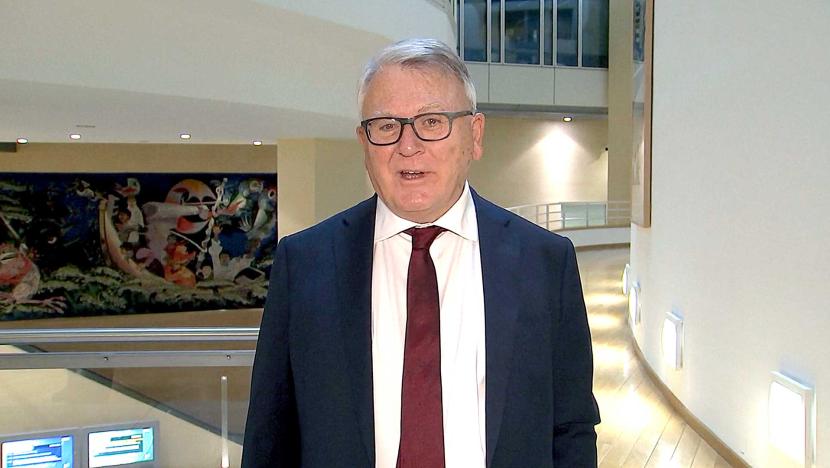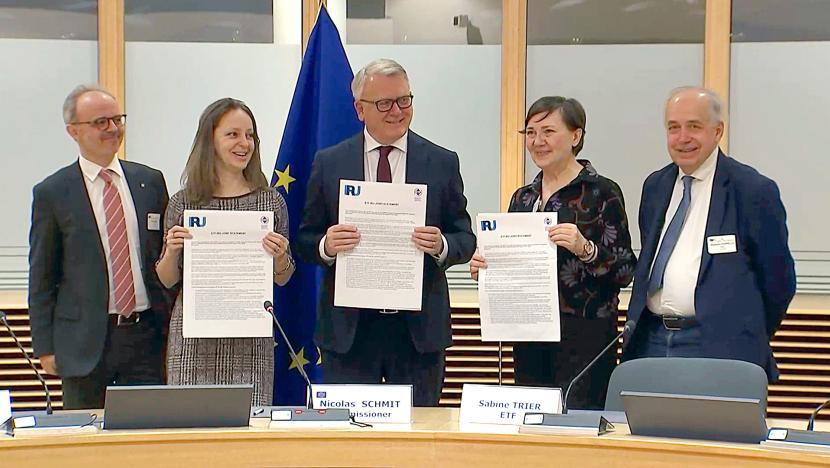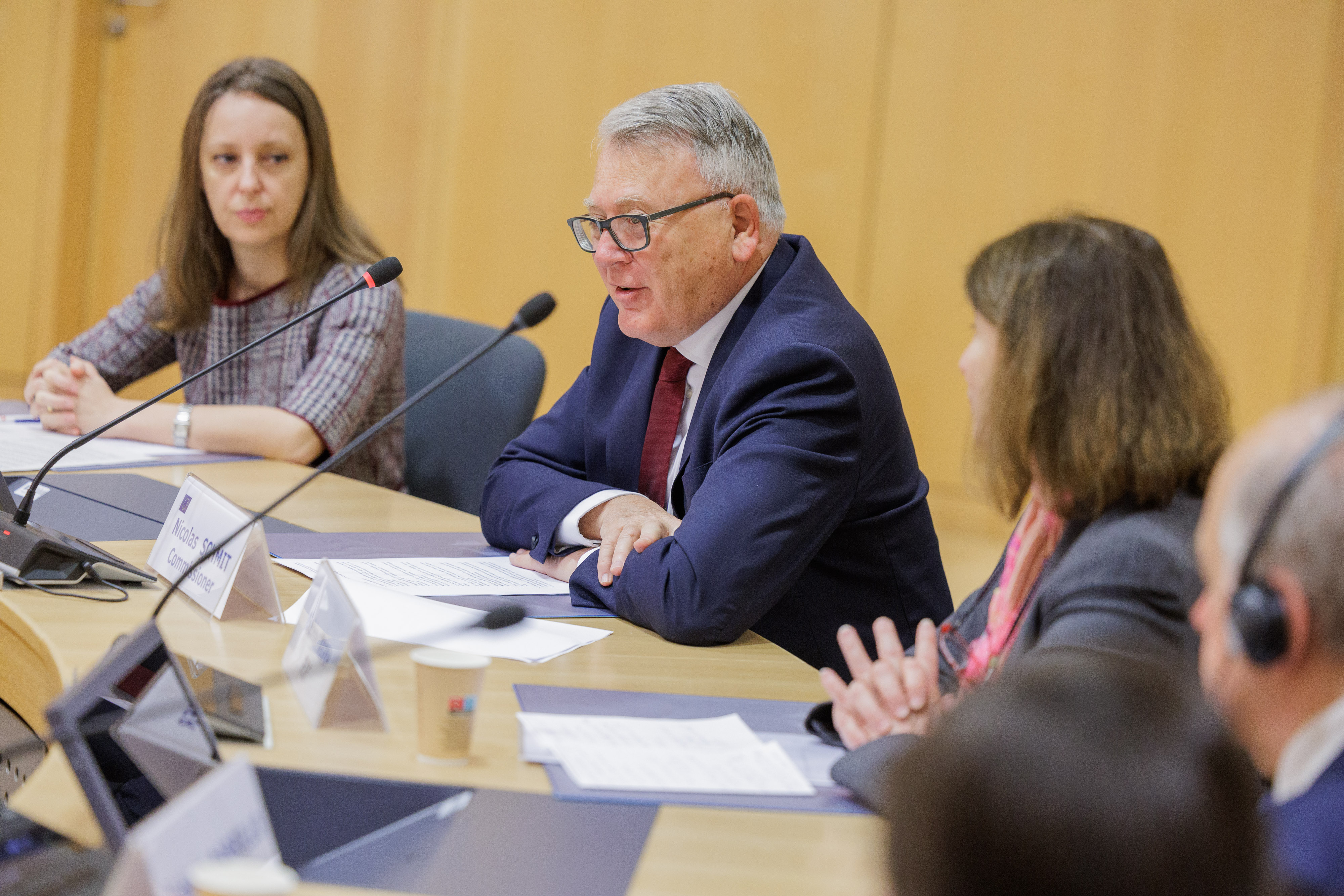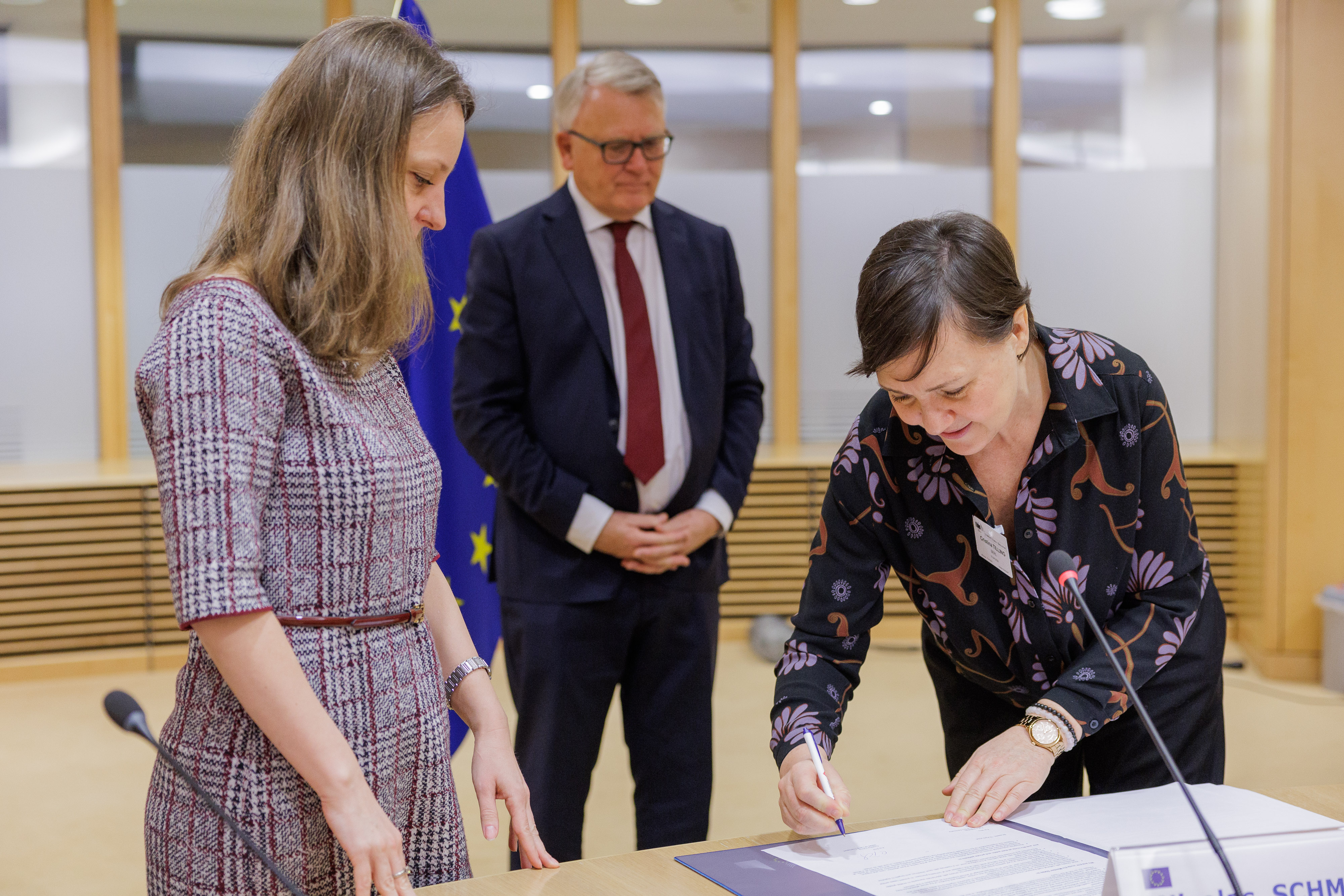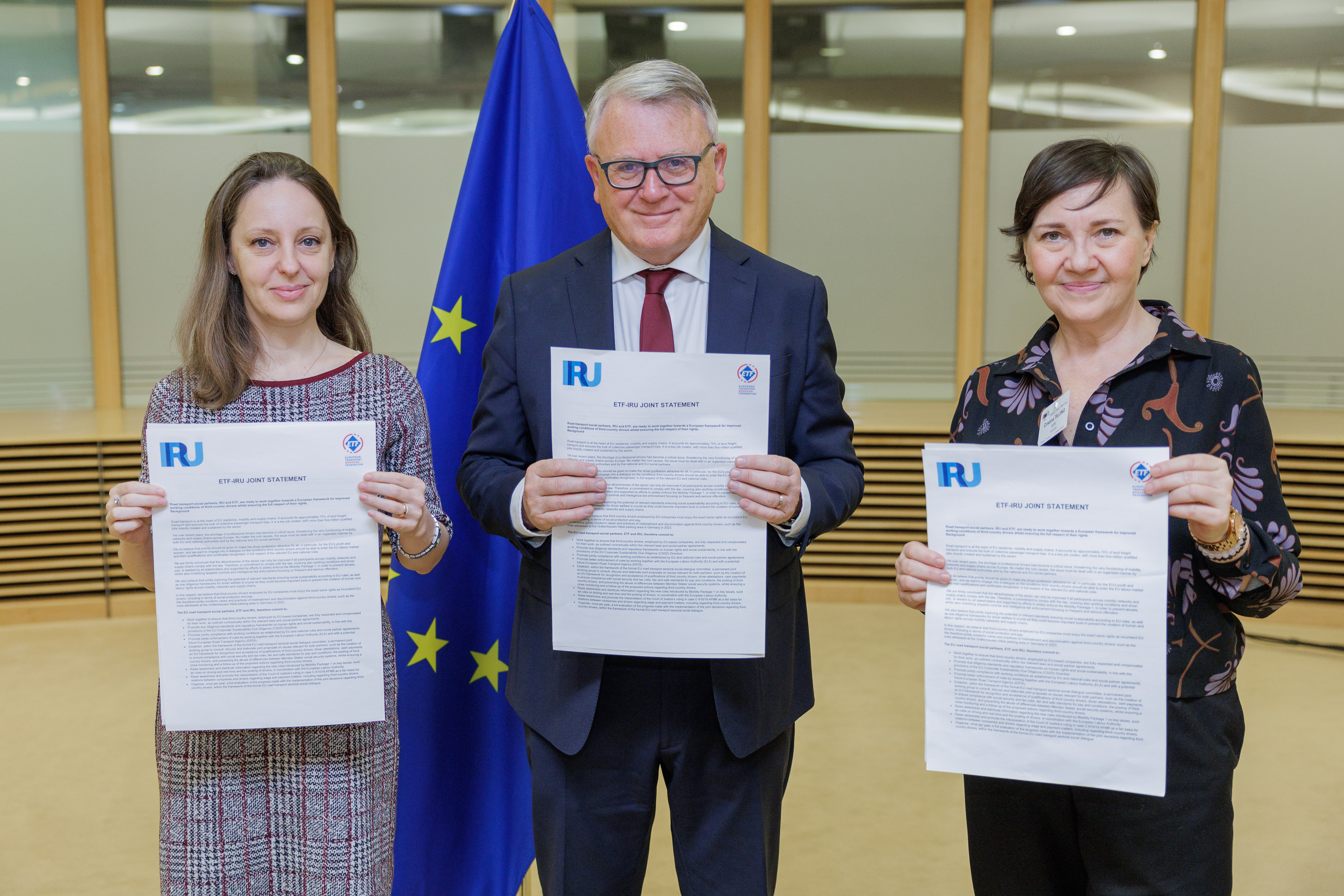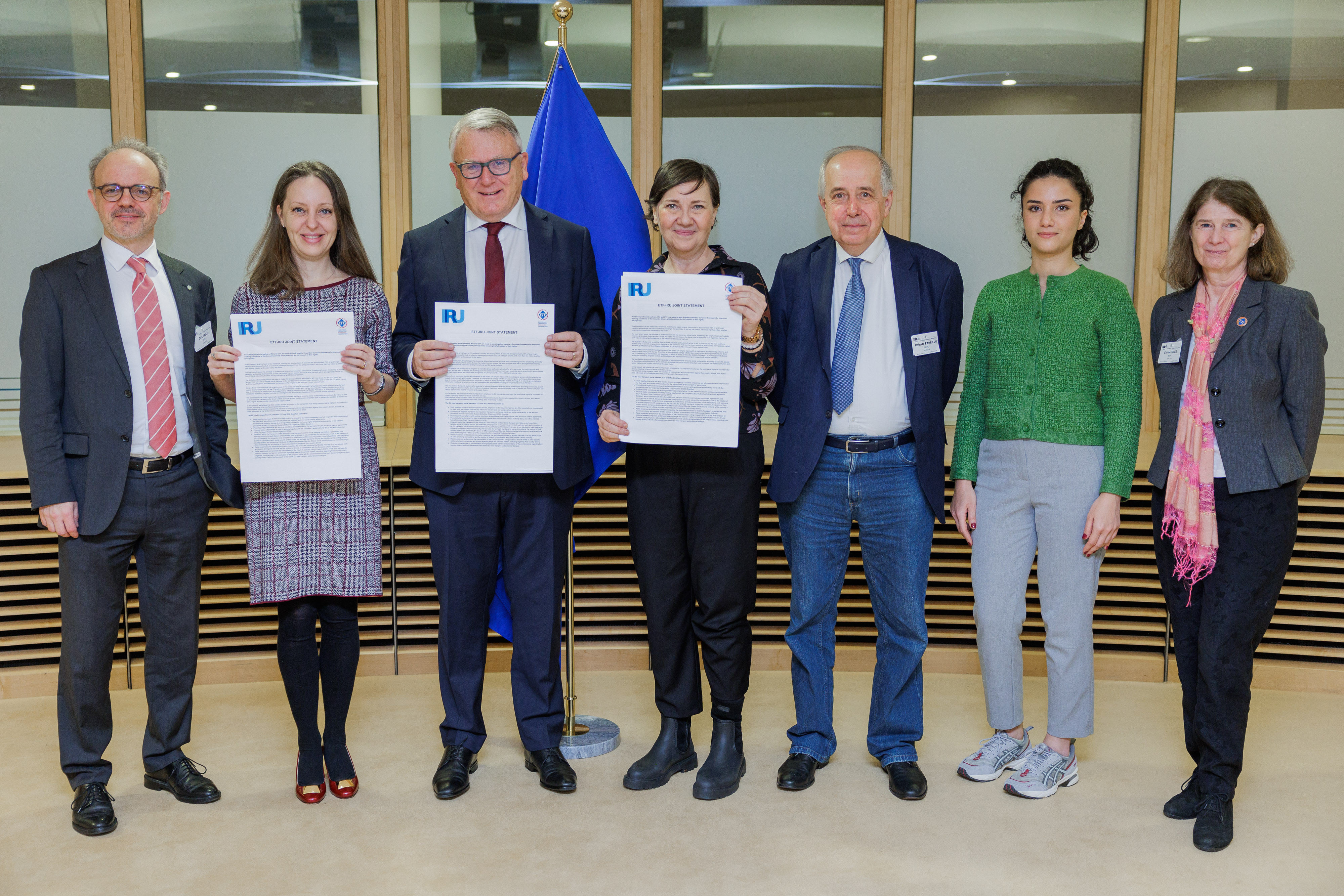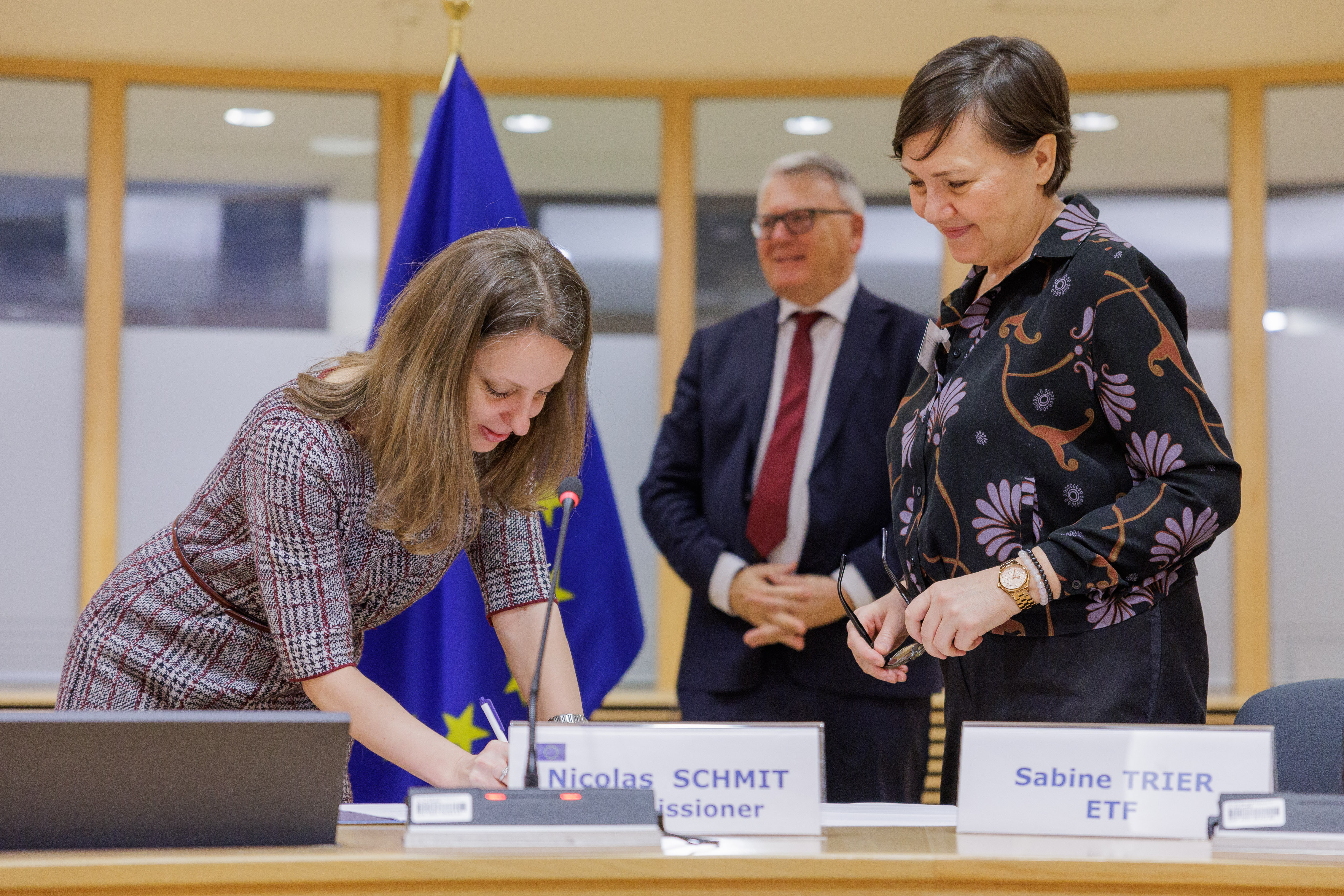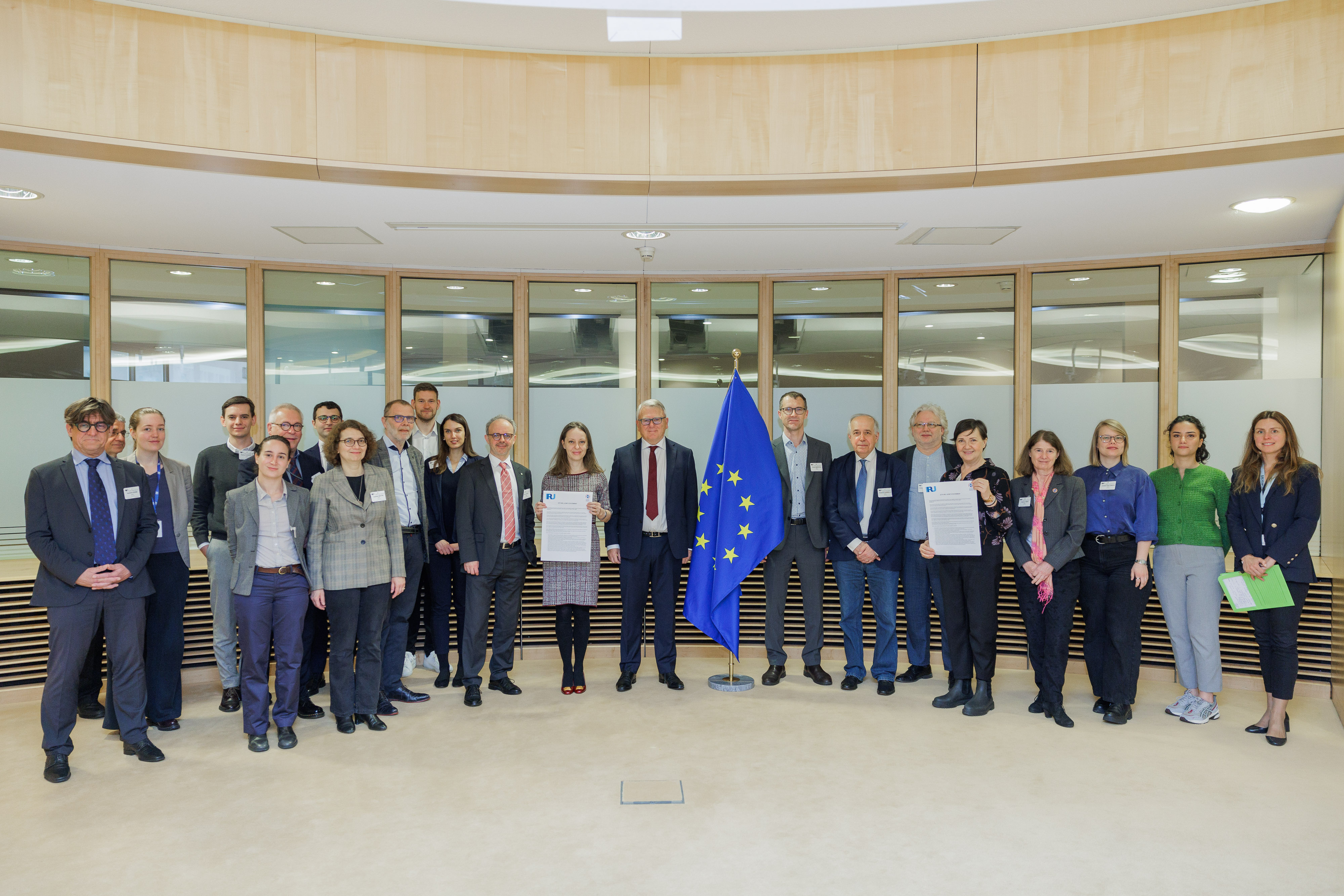IRU and ETF delivered their joint statement on third-country drivers to the EU Jobs and Social Rights Commissioner today. Both organisations commit to working together to enhance the working conditions of third-country drivers, in full respect of their rights.
Europe’s road transport social partners, IRU and ETF, today signed and handed over their joint declaration on creating a European framework to improve the working conditions of third-country drivers employed by EU-based companies to EU Jobs and Social Rights Commissioner Nicolas Schmit.
The two organisations expressed their commitment to make the driver profession more attractive, emphasising the inclusion of EU youth and women, and improving the working conditions of third-country drivers. This includes the recognition of their qualifications and licences, in full adherence with EU and national regulations.
Acknowledging the critical contribution of road transport to resilience, mobility networks, and supply chains, the joint statement underlines the sector's indispensable role in the economy and as a pivotal job creator. It also addresses the growing challenge of professional driver shortages.
EU Jobs and Social Rights Commissioner Nicolas Schmit said, “The joint ETF-IRU statement is an important step in addressing labour and skills shortages in the road transport sector. It is a demonstration of the European sectoral social partners’ commitment to take action to improve working conditions for non-EU drivers.”
“Abusive practices and poor working conditions have no place in the EU. I strongly welcome today’s statement which should be an inspiration for other sectors,” he added.

